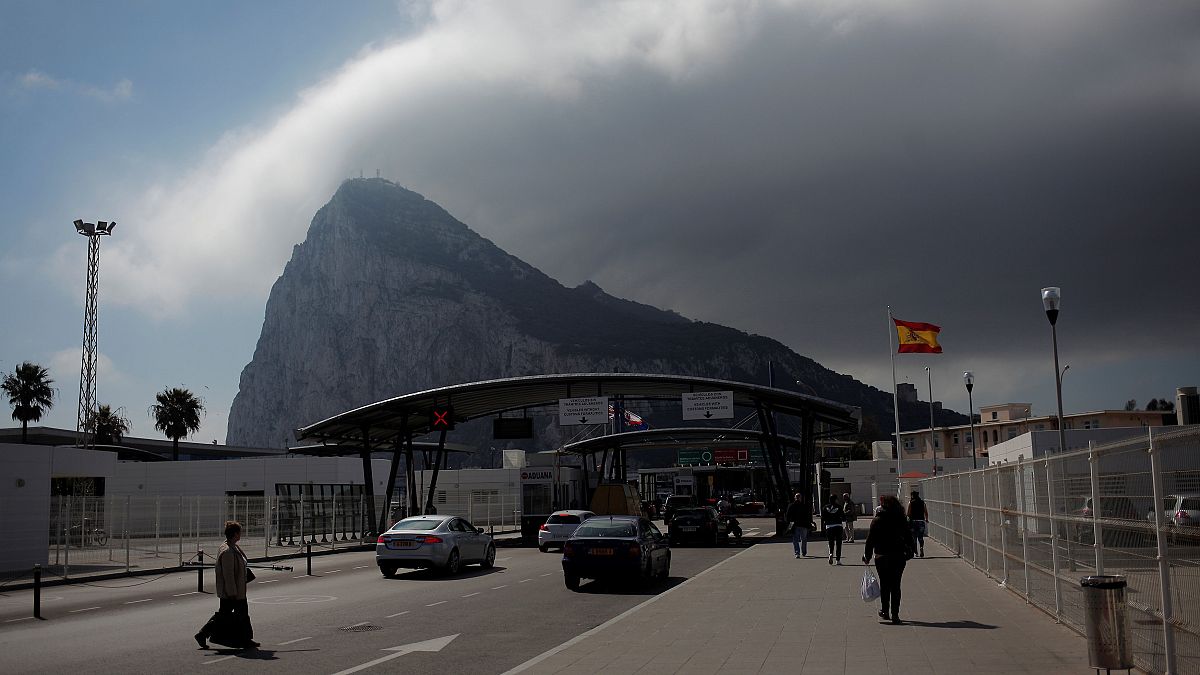The question of Gibraltar has been a thorn in the side of UK EU relations for years and now with Brexit, tempers are flaring again
The self-managed British territory of Gibraltar has been a source of tension between the UK and Spain for decades, and now that lawmakers on both sides of the English Channel prepare for Brexit talks, Gibraltar has become the first major dispute in the upcoming divorce.
Within days of UK Prime Minister Theresa May signing the UK’s intent to leave the European Union, EU lawmakers signalled “no agreement between the EU and the United Kingdom may apply to the territory of Gibraltar without the agreement between the Kingdom of Spain and the United Kingdom”, according to a draft of the EU’s negotiating points.
The declaration, seen in the UK as an affront to the country’s territorial sovereignty, outraged government officials and even prompted Lord Howard, a former leader of May’s political party, to suggest the UK would defend Gibraltar with the same resolve with which it defended the Falkand Islands from Argentina in 1982.
History
Gibraltar occupies a strategic position at the mouth of the Mediterranean Sea. It was held by Spain until August 1704 when, during the War of Spanish Succession, British troops invaded and seized the 6.7 square kilometre peninsula.
Spain was forced to cede the territory to the English during peace talks but, more than three centuries later, Madrid has never renounced its claim on Gibraltar.
Used by the British as a naval base, a trading outpost and a staging point from which to strengthen its control of the seas, the question of Gibraltar has long loomed over Spanish and UK relations.
In 1967 the United Nations in Resolution 2353 called Gibraltar a UK colony which violates the territorial integrity of Spain and is incompatible with the spirit of the UN.
The UN also does not recognise Gibraltar’s government, calling it a Non-Self-Governing Territory under the administration of the UK government in London.
From 1969 until 1985 Spain’s border with Gibraltar was closed by Francisco Franco’s fascist government.
Modern Relations
Madrid has long maintained the territory should be returned to Spain, but the UK has said it would not do so without the permission of the more than 32,000 people living there.
In 1967, and again in 2002, staunchly British Gibraltarian citizens overwhelmingly voted against joining Spain.
By 2006, the governments of Spain, Gibraltar and the UK created the Tripartite Forum for Dialogue to improve relations between the rivals. Airline services resume between the territories – after being disrupted since 1954.
In 2009, Miguel Ángel Moratinos drove from Spain to Gibraltar. It was meant as a symbol of good faith and rapprochement with the UK, but in some political circles in Madrid, his visit was akin to treason.
But then, with the election of Mariano Rajoy, relations soured. Rajoy in 2012 called for talks to determine Gibraltar’s sovereignty. That same year a dispute about fishing grounds included a clash of police boats from both Spain and Gibraltar sides.
And one year later Spain imposed tough border checks after Gibraltarian authorities submerged concrete blocks to build an artificial reef. Madrid accused Gibraltar of endangering its fishermen.
Gibraltar Today
With 32,000 inhabitants, Gibraltar has a thriving economy with a large Spanish commuter workforce. Over the years it has established itself as an international centre for offshore banking – but some have called the territory a tax haven.
Craig Murray, the UK’s former ambassador to Uzbekistan, claims there are more registered companies in Gibraltar than there are resident households.
Murray argues the UK’s justification for its control over Gibraltar – the issue of Gibraltarians’ self-determination – has no merit as the population is almost entirely comprised of imported British “colonists” who reap the benefits of their tax haven status.
With its symbiotic relationship with neighbouring Spanish communities, Gibraltar voted to remain within the EU during last summer’s Brexit referendum vote.
Spain’s Foreign Minister Alfonso Dastis urged calm after the UK’s weekend sabre rattling regarding Gibraltar
‘‘The Spanish government is a little surprised by the tone that has been created in the United Kingdom,” Dastis said. “But it’s obvious that in this case, the traditional ‘British phlegm’ has been notable for its absence.”
